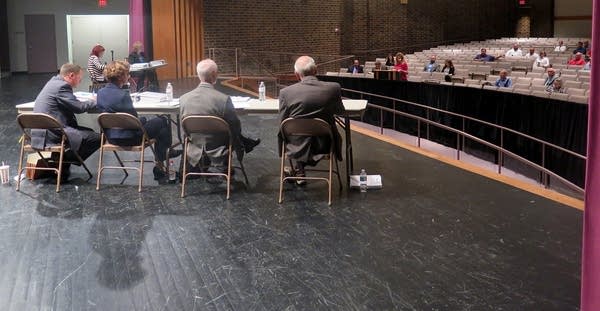Can Minnesota have clean water without regulating fertilizer?

Officials from the Minnesota Department of Agriculture listen during the first of a series of public hearings on Monday in Farmington, Minn.
Elizabeth Dunbar | MPR News
Go Deeper.
Create an account or log in to save stories.
Like this?
Thanks for liking this story! We have added it to a list of your favorite stories.


